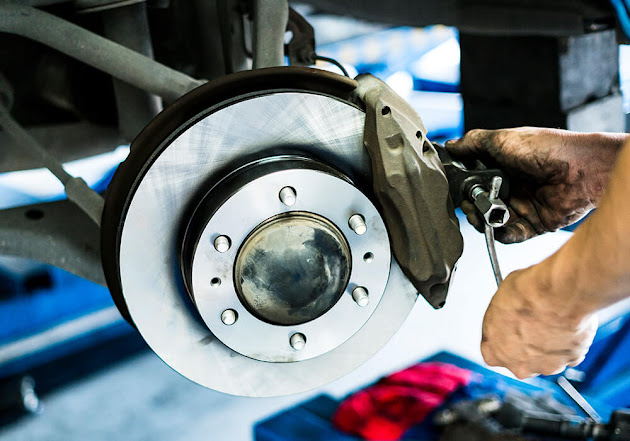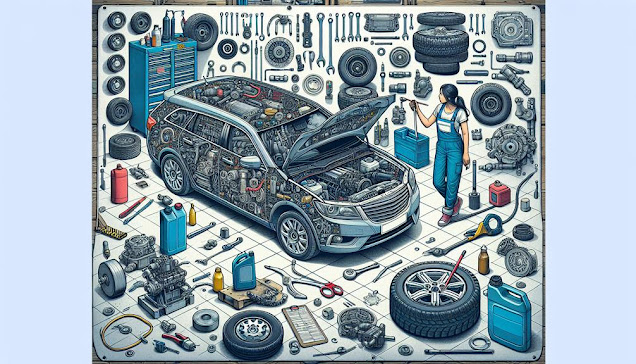How Preventive Maintenance Can Help You Cut Costs on Car Repairs
- Get link
- X
- Other Apps
Preventive maintenance is fundamental to managing a vehicle cost-effectively, as it emphasizes early detection to prevent extensive repair expenses. Regularly scheduled check-ups, precise oil changes, and strict adherence to manufacturer-recommended service intervals are crucial practices. These actions not only reduce the likelihood of major mechanical issues but also help optimize vehicle performance and extend its lifespan. To truly understand the substantial financial benefits associated with preventive maintenance, it's essential to explore specific strategies and real-world scenarios that highlight its effectiveness. How can these methods be realistically integrated into your vehicle maintenance routine to ensure maximum savings?
The Importance of Preventive Maintenance
In vehicle care, the importance of preventive maintenance cannot be overlooked. This approach involves a series of proactive measures, including regular inspections, timely oil changes, and routine fluid level checks, all designed to prevent potential problems. By taking a systematic approach, you not only prolong the life of your vehicle but also enhance its overall efficiency. Following the service intervals recommended by the manufacturer allows vehicle owners to address issues related to wear and tear before they become more serious and expensive to fix.
Preventive maintenance carries significant cultural value, reflecting a commitment to personal responsibility and community safety. Regular upkeep demonstrates diligence and foresight, qualities highly regarded in automotive enthusiast communities. Technical terms like “diagnostic assessments” and “engine performance optimization” underscore the specialized knowledge required to carry out effective maintenance procedures. Using advanced diagnostic tools, technicians can pinpoint and fix minor problems, thereby preventing major system failures and ensuring smooth vehicle operation.
Cost-Effective Maintenance Tips
Making vehicle maintenance cost-effective requires a strategic approach that combines technical know-how with practical advice. One of the most fundamental tasks is scheduling regular oil changes. Using high-quality synthetic oil can significantly extend the engine's life and improve fuel efficiency, saving money in the long run.
Tire care, including regular rotation and alignment, not only extends the life of the tires but also ensures optimal vehicle handling, which is crucial for both safety and performance. Properly maintained tires contribute to better fuel efficiency and provide a smoother driving experience.
Incorporating diagnostic tools into your maintenance routine for early detection of potential issues can greatly reduce repair costs. Tools like OBD-II scanners can identify engine faults before they develop into more serious problems, allowing for prompt and often less expensive repairs.
Maintaining the cooling system is also vital. Flushing and refilling the coolant at intervals specified by the manufacturer helps prevent overheating, a common cause of engine failure. Overheating can lead to severe damage and costly repairs, making this preventive step particularly important.
Battery health is another key area to monitor. Regularly inspecting and cleaning battery terminals can prevent issues caused by corrosion. Additionally, integrating seasonal checks, such as ensuring the heating and cooling systems are functioning correctly before extreme weather hits, can help avoid costly repairs and ensure your vehicle remains reliable in all conditions.
Keeping a detailed maintenance log is a valuable tool for tracking service intervals and part replacements. This proactive measure helps ensure that no aspect of vehicle care is overlooked. By adhering to these cost-effective maintenance practices, vehicle owners can foster a sense of community within a culture that values both financial prudence and mechanical reliability. This strategic maintenance approach not only ensures the vehicle's longevity and reliability but also aligns with the principles of preventive care.
In summary, preventive maintenance is a critical strategy for lowering vehicle repair costs by addressing problems before they escalate. Regular inspections, prompt oil changes, and sticking to service intervals are essential practices that boost the vehicle’s lifespan and operational efficiency. Why face the burden of major repair costs when preventive measures can help avoid them? Adopting preventive maintenance not only saves money but also ensures that the vehicle remains in top condition, offering long-term economic benefits and peace of mind.
Integrating these methods into your vehicle care regimen can significantly enhance your vehicle’s performance and durability while minimizing unexpected expenses. Whether it’s using advanced diagnostic tools or maintaining a meticulous service log, these strategies collectively contribute to a more reliable and cost-effective approach to vehicle maintenance.
- Get link
- X
- Other Apps



Comments
Post a Comment